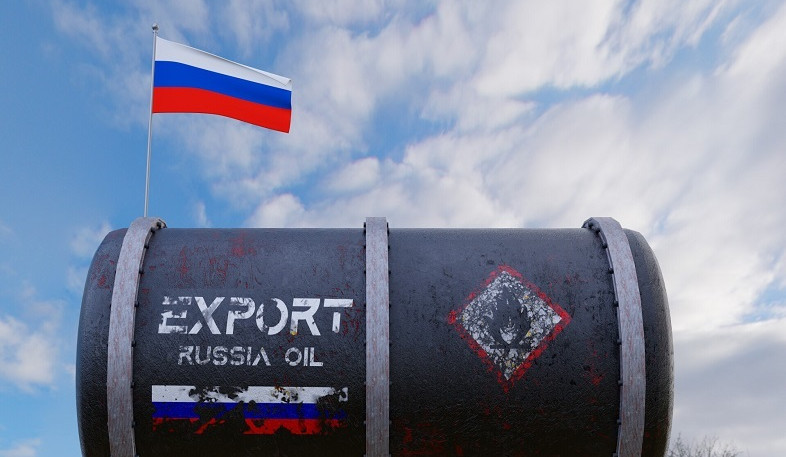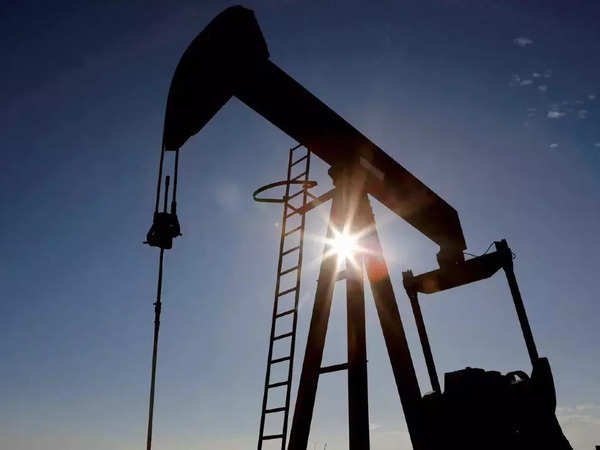Price Cap On Russian Oil
Jan 29, 2024 By Triston Martin
Since Russia invaded Ukraine, the United States' energy strategy has pursued two broad goals that seem to be in direct opposition. The first step is to maintain a worldwide oil supply that is sufficient to keep prices within a reasonable range while maintaining a high level of popular support for sanctions. The second strategy is to choke Vladimir Putin's military machine by cutting off the flow of funds that Russia collects from selling oil barrels.
Together, they create a difficult circle because, with supply and demand closely matching one another and a shortage of new production, removing even a little amount of oil from the market would automatically cause prices to rise. Despite this, Western markets have developed increasing policies intended to interfere in the oil market to circumvent the rule of physics.
The ones implemented up to this point have often been piecemeal and included compromises that could be better. On November 26th, the United States of America permitted the large American oil company Chevron to increase its production in Venezuela, puncturing its own sanctions on the tyrannical dictatorship in that country. Additionally, significant amounts of crude oil were released from the United States' strategic reserves; as a result, these reserves are now at their lowest point since 1984.
What To Anticipate From The Newly Implemented Oil Price Cap In Russia
The price cap on Russian oil, which nations in the Group of Seven (G7) have been threatening for some time as a reaction to Russia's conflict in Ukraine, is now becoming a reality. This cap was promised in response to Russia's actions in Ukraine. Office of Foreign Assets Control (OFAC) of the United States Treasury Department released a decision to pursue the cap along with comprehensive recommendations for market players the week before last.
On Friday, following a protracted period of back-and-forth negotiating, ambassadors from the European Union (EU) are said to have given their approval to an initial set ceiling of sixty dollars a barrel. In the next few days, other participating members of the price limit will be required to provide their signatures.
How Exactly Will The Target Cost Be Implemented? Will It Be Successful?
The ceiling prevents businesses in participating countries from providing shipping, insurance, and other services to shipments of Russian crude oil sold at a price per barrel greater than a certain threshold, which in this case is sixty dollars. These services include trading and brokering. In actuality, it will be the responsibility of these suppliers to request evidence from their customers that they have made purchases at prices that comply with the price restriction.

The advisory provided by OFAC demonstrates some awareness of the possibility that shipping and insurance companies might need accurate information on the amounts their customers pay for each shipment. It requires them to obtain attestations that the limit has been respected via standard contract clauses that are both straightforward and easy to understand. Companies that make these requests will not likely be subject to enforcement proceedings. By using this strategy, OFAC and its equivalents will have the right to go after anybody who may have misled in an attestation, such as by engaging in a separate transaction that is more than the limit.
What Type Of Repercussions Will This Have On The World Stage?
The actions of Washington, Brussels, and other capitals will be evaluated based on whether or not we see a decrease in Russia's export revenues despite an increase in domestic gas prices that are not excessive. Whether the limit is the deciding factor or not is irrelevant so long as these two requirements are met.
Currently, the limit is not considerably lower than the price of Russian oil, so it is unclear how Moscow would react to this development. Russian President Vladimir Putin recently gave the green light to increase output. If most of Russia's supply continues to be sold on the market, the impact on prices will be minimal.
Should global prices rise, and the cap requires Russia to accept an even greater discount, we anticipate that Moscow would react by reducing the number of goods it sells. The issue is whether this is a little decrease or if a significant portion of Russia's supply will become inaccessible for the time being. Since reaching their high point in July, prices have dropped significantly. The government's participation in the price limit has soothed market players. Still, the fundamental reason for this is the possibility of a recession in the G7. At first, our primary concern was that introducing new levels of complexity would raise market tension, which would lead to increased pricing.


Guide to USDA Construction Loans: All You Need to Know
Nov 09, 2023
Set on the journey of building your dream home with confidence with our comprehensive guide to USDA Construction Loans

Best Features of Unum Life Insurance
Dec 07, 2023
As part of its benefits package for employees, Unum provides options for both term and whole life insurance.

Fintwist Uncovered: What You Need to Know About This Service
Feb 02, 2024
Fintwist is a financial wellness platform that empowers employees by providing easy access to their wages, savings, and financial tools, fostering better financial security.

Difference Between Jumbo and Conventional Mortgages
Dec 11, 2023
Homebuyers have the option of choosing between conventional mortgages and jumbo mortgages when it comes to the sort of financing they employ.

Common Tax Deductions For The Self-Employed
Oct 13, 2023
Learn about common tax deductions for the self-employed to maximize your savings. Explore valuable insights on tax deductions for freelancers and entrepreneurs.

Examining Auto Loans from First Tech FCU
Feb 23, 2024
Apply for an auto loan from First Tech Federal Credit Union with its affordable interest rates. Their online application process simplifies membership. Read more.

Finding the Best Online Brokers for Mutual Funds: Your Guide to Investing Success
Jan 16, 2024
Looking to invest in mutual funds? Let us help you find the best online brokers with our comprehensive guide.

The Health Insurance Marketplace
Dec 29, 2023
If a health insurance plan does not insure you via your employer, spouse's or parent's plan, or any other source, the Health Insurance Marketplace may be the best location to get health insurance.

Quota Share Treaty Demystified: Definition and Operational Insights
May 08, 2024
Explore the essentials of Quota Share Treaties in the insurance industry, their impact, benefits, and the future outlook in risk management and reinsurance.

Tips on How to Start Saving Money
Oct 17, 2023
Regarding financial planning, getting started may be one of the most challenging aspects. This step-by-step method can assist you in developing a strategy that is straightforward and attainable, which will allow you to save money for all of your short-term and long-term goals

Step-by-Step Guide: Completing and Filing Form 5884
Feb 03, 2024
Learn how to file Form 5884 and claim the Work Opportunity Credit for your business. A step-by-step guide with mistakes to avoid and important deadlines highlighted.

Do You Know: What Are Emerging Markets?
Dec 23, 2023
The term "emerging markets" describes countries experiencing rapid economic growth while exhibiting some but not all of the features of a developed economy. Countries in the process of leaping from the "developing" to the "developed" stages of economic development are known as "emerging markets."